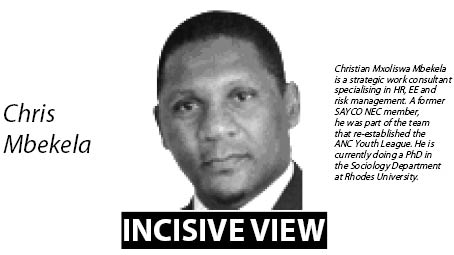Mugabe is overthrown and has accepted defeat by tendering his resignation. His resignation came into effect after he realised that the balance of forces was not in his favour. Role players across the board turned their backs on him. Complicating the situation for him was a total rejection displayed by the Zimbabwean critical mass against him. He had no leg to stand on and one option at his disposal was to succumb to well-orchestrated pressure by resigning.
Failing his resignation, he would have faced impeachment and processes to that eventuality were already under way. The impeachment would have had devastating effects on him and his entire family. A retirement package with lucrative benefits presented to him to consider for his resignation might have been affected negatively as well as the granting of immunity that would ensure heis not prosecuted for horrendous acts committed under his rule.
Refusal to resign might have contributed to an eruption of violence with clashes between the critical mass and heavily armed securocrats. Such a situation would have had detrimental effects on Zimbabwe in particular and neighbouring countries in general. South Africa would have been the hardest hit by a massive influx of Zimbabweans seeking political asylum. Such an eventuality would have had serious political and socio-economic implications here.
Currently, South Africa faces an avalanche of political problems, in the main caused by perpetual fights within the ruling elite bloc. Complicating the situation are deeply entrenched socio-economic problems caused by historical and present factors. Diverting resources to meet the requirements for mass political asylum would have created a conducive climate for uprisings. South Africa’s and Zimbabwe’s economies are interdependent. As South Africans we have to be concerned when there is political instability in Zimbabwe. Political stability and economic prosperity in Zimbabwe are good for South Africa and the SADC in general.
Mugabe’s successor and his cohorts should ensure that constitutional reforms are made. This would ensure that old-order and anarchic practices are phased out and democratic practices phased in. This would also brings back investor confidence and political stability. Fundamental is to ensure that proper governance is treated as the highest priority. If the newly anointed transitional president, Emmerson Mnangagwa, one of the richest politicians on the continent, carries on with the Mugabe’s legacy, we all should be concerned.
On a positive note, former liberation movements, in particular on the African continent should adapt their mode of operations to the needs and demands of the post-colonial era if they want to be relevant. The adoption of a new mindset is critical so as to be able to navigate under different circumstances.
The reluctance to adapt to prevailing circumstances in order to change them has the potential to create despots.
When people fail to govern and deliver, they resort to the politics of racialism and distort the nature and character of the cause. Whoever pushes the politics of racialism, irrespective of background, is a real threat to the democratic project. Interestingly, opposition parties in Zimbabwe have not pronounced on how they envisage the future. Even now, no word is uttered on how they are going to position themselves in the post-Mugabe era.
Opposition parties should understand one thing among others: the ruling party has used this opportunity to entrench its hegemony. People who engineered the Mugabe departure are seen as messiahs who saved Zimbabwe from collapse. Should the ruling party play its game cleverly they might win the national elections outrightly. Unless they make the same mistakes committed by Mugabe.


